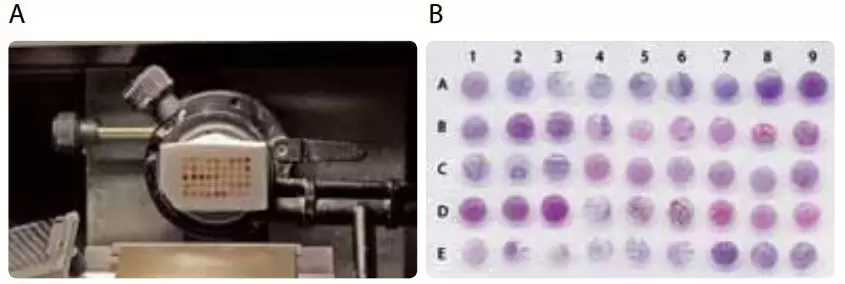
Tissue
Tissue-specific Analysis
High-Quality Tissue Products
Human tissue research plays a vital role in developing a deeper understanding of human disease processes and their underlying mechanisms. Aside from animal welfare issues, the scientific advantage of using human tissue is that the data it provides is directly relevant to humans, unlike experiments on animals, where there is always the risk of misleading predictions. Thus, well-characterized and annotated biospecimens that accurately reflect various disease states are critical to successful biomarker discovery and development research. They can provide a bridge between emerging molecular information and clinical information, and enable a wide range of analyses that allow for a better understanding of the genetic and molecular changes involved in the progression of diseases.
- Paraffin and Frozen Tissue Microarrays
- Paraffin and Frozen Tissue Section Slides
- Total RNA including microRNA
- PCR-Ready First-Strand cDNA
- Genomic DNA
- Proteins (total protein & subcellular fractions)
Tissue microarrays, derived from multiple donor tumors systematically aligned within a single recipient block, allow for high-throughput molecular profiling of many tumor tissues simultaneously in a single experiment. At the same time, the large number of available consecutive arrays enables rapid analysis of multiple molecular markers in the same set of specimens.
Gene amplification and protein overexpression can be studied by DNA and RNA in situ hybridization or by immunohistochemistry. Tissue microarrays containing normal tissues are employed for antibody characterization and evaluation of tissue-specific protein expression. For antibody cross-reactivity testing, tissue microarrays designed in conformance with FDA guidelines are offered.

A. Recipient block for tissue microarray production. B. Human FDA Standard Frozen Tissue Microarray from BioChain.
Tissue-specific total RNA, cDNA, protein and genomic DNA preparations from human adult and fetal tissues, human diseased and tumor tissues, from mouse, rat and other vertebrate model organisms as well as from plant tissues are also provided. They can be used for functional genomics and proteomics research applications like expression analysis or for epigenetic studies.